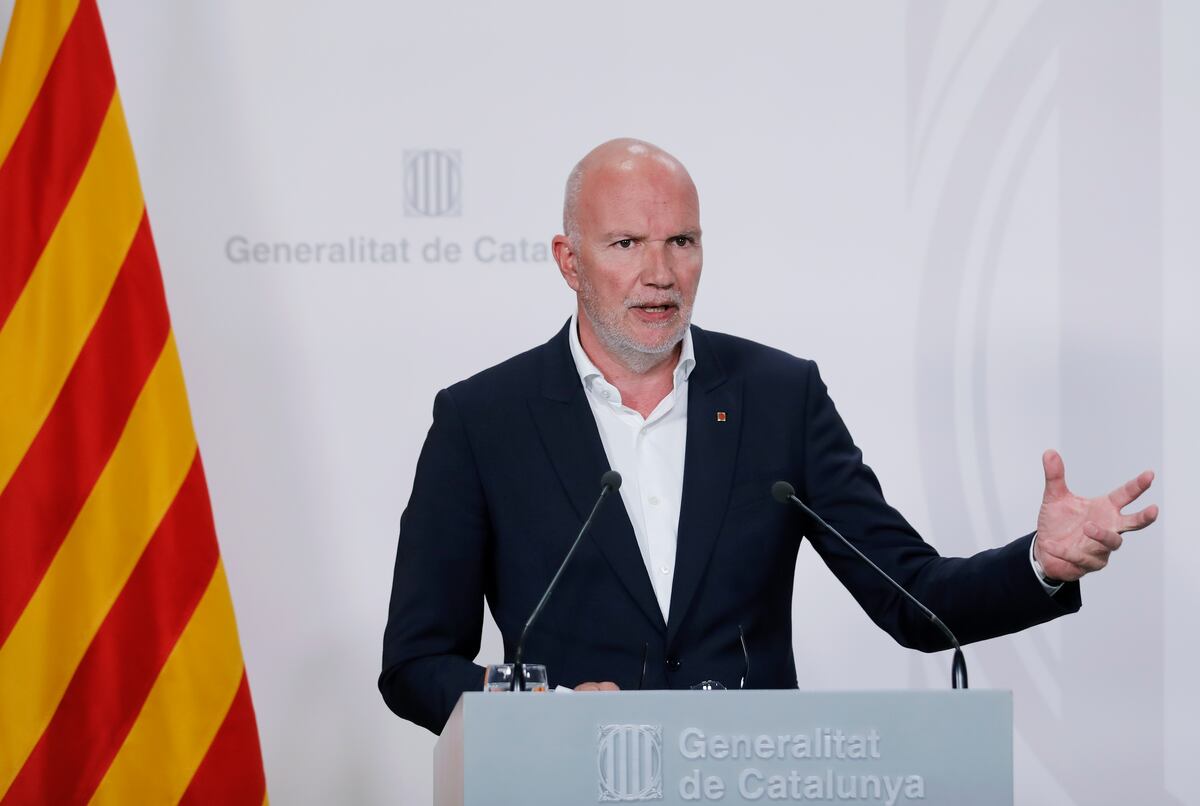The ups and downs in the management of the drought crisis in Catalonia have become a constant on the part of the Generalitat.
But if until now the rectifications had been about specific announcements or restrictions, today the Catalan Government has made something similar to an in-depth amendment to its own policies.
David Mascort, advisor to Climate Action, gave an interview to
TV3
this Monday where he acknowledged that there are measures of the Special Drought Plan (PES), which guides the measures to be taken, that "do not seem entirely correct to us."
“We are tied hand and foot.
There is a rule approved by the Government, which is the PES, that says what the restrictions should be.
What we have done is read the fine print to try to relax some restrictions that do not seem entirely correct to us,” Mascort confessed.
The counselor has thus referred to an anti-drought plan that was approved by the Government itself in 2020 and, although ERC did not hold the presidency of the Generalitat then, it did command 50% of the Executive with Junts per Catalunya.
Mascort has also had to respond to the existing discomfort in the tourism sector due to the impediments to filling the hotel pools with a view to the summer season that starts in a few weeks.
Some hoteliers, such as those in Lloret de Mar (Girona), intend to fill them with water from a desalination plant that they want to pay for out of their own pocket, something that is not contemplated in the anti-drought plan.
Mascort did not want to say if they will allow it.
“Everything will depend on the environmental impact of the project and the concession from the Catalan Water Agency (ACA),” stated the counselor.
The document with the anti-drought measures - approved under the presidency of Quim Torra and with a Junts advisor, Damià Calvet, at the head of the Department of Territory - does not contemplate the use of swimming pools in the emergency phase if they do not use salt water.
Therefore, in the current situation, a good part of the Catalan coast would not have full pools this summer.
The counselor has repeatedly emphasized that the PES was designed to anticipate water crises such as the one that Catalonia went through in 2008, the most serious up to that time.
But he also believes that he is not well adapted to the current situation since, he admits, they did not expect such an acute episode of lack of precipitation.
“It was not expected that we would experience a drought like this with 40 consecutive months without rain,” he assured.
In fact, the Generalitat has slightly modified some of the restrictions of the emergency phase to adapt them to the current situation.
He allowed the “survival irrigation” of trees to better cope with the coming episodes of heat and that of sports facilities for federated competitions.
“We are going to allow people to continue practicing sports,” Mascort argued in January, supported by the fact that the pandemic made it clear that sports activity has a fundamental role in the well-being of the population.
They also reduced the ecological flow of the Llobregat, Ter and Muga rivers more than what was initially established in the PES and extended the prohibition on filling swimming pools to hotels and campsites.
Regarding the recent movements of some municipalities and hoteliers in Lloret del Mar, which have acquired portable desalination plants to fill swimming pools, Mascort has stated that, although the PES does not allow it, everything will depend on the characteristics of the project.
“They need an administrative concession of costs, an authorization from the ACA and an environmental license that varies according to the number of liters of seawater they need,” detailed the counselor, who also explained that “each case will be studied.”
It is an answer that Mascort has already given in subsequent sessions of the Executive Council when he was questioned about the construction of the Hard Rock casino in Tarragona, which would involve water consumption similar to that of a city of nearly 30,000 inhabitants.
Mascort has also been asked about the farmers' demands
.
The counselor explained that many farmers were already consuming less water than in previous years.
“Just with the measures they have taken in feeding, many of them are already consuming less water,” detailed Mascort, who also explained that the 50% restriction on water consumption in livestock farming “has nuances” because PES prioritizes the survival of animals.
The
councilor
has also asked that both farmers and ranchers come together on a single platform to share their options to ease restrictions on water consumption.
The sector is committed to expanding the limit to industrial activities, although they are studying more possibilities.
You can follow EL PAÍS Catalunya on
and
X
, or sign up here to receive
our weekly newsletter

